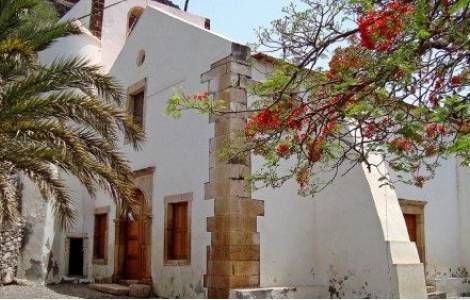
Praia (Agenzia Fides) - A state in the middle of the Atlantic Ocean, a bridge that seems designed to connect Africa, Europe and America. Cape Verde is an archipelago composed of ten volcanic islands (only one is uninhabited) that are about 500 kilometers from the coast of Senegal. Like all the Lusophone countries of the Continent (Mozambique, Angola, Guinea Bissau, and the islands of Sao Tome and Principe), it achieved independence in 1975, several years after most other African states. Since then it has enjoyed relative political stability. But due to the scarcity of resources and environmental problems, mainly linked to global warming, it remains a country characterized by poverty and currently has more population outside than inside its borders.
"According to the latest census - explains to Fides Father Antonio Ferreira, president of the national commission for the jubilee of the 500th anniversary of the evangelization of Santiago – there are about 500 thousand people living in Cape Verde, the majority are young or very young (more than 75%, ed.). The problem is that we have no natural resources. The only two sources of income are tourism and remittances from emigrants. Small local businesses and industries represent a minimal share of the labor market".
The main problem that affects everyone's daily life is the chronic lack of water due to the scarcity of rainfall, which has the effect of increasing emigration. "There is a great effort by the government to ensure that all islands, even the most remote ones, have primary services", acknowledges Father Ferreira. Schools at least up to secondary are being built on every island, and schooling is totally free thanks to a great effort by the government. "Every now and then, especially in the capital Praia or in the larger islands," he adds, "because of social problems or unemployment, there are tensions. Overall, however, the situation is peaceful, and in the smaller islands it is absolutely calm". Recurring droughts and the lack of rain regularly pose a problem for the archipelago's economy, which, while contributing little to global warming, pays for the consequences. "We are islands in the Atlantic - explains Father Ferreira - and we suffer from energy dependence because we have no resources, everything is imported here, and the lack of rainfall and the very little water, are a huge problem for us. Right now the government is working on a project to take advantage of the most abundant resource we have, sea water. The desalination of sea waters and the arborization of the country, are currently the paths that the government, supported by the United Nations and international cooperation, is pursuing, but we feel the problem of the always excessively hot temperature very much".
Shortly after independence, an unabated outward flow began, and now there are more Cape Verdeans outside than inside the Archipelago. A flow that does not seem to stop. "People," the priest reports, "continue to emigrate from Cape Verde and to all corners of the world. But for all those who leave, the bond with the homeland remains very strong, and they feel they must contribute to the well-being of what is their home. During the pandemic, diaspora aid was essential, and overall remittances hold up the economy. This phenomenon is experienced with pride: our communities abroad, usually well integrated, know that they are helping the country by helping their families".
The population largely belongs (more than 90 percent) to the Catholic Church, which has been present in the Archipelago since the 15th century. "There are also other denominations," adds Father Ferreira, "and coexistence is very peaceful." The local Church, with its two bishops - Cardinal Arlindo Gomes Furtado, Bishop of Santiago, and Ildo Augusto Dos Santos Lopes Fortes, Bishop of Mindelo - has already begun the long journey toward the celebration of the 500th anniversary of the evangelization of the island of Santiago, which took place under Clement VII in 1533. "We live this time with joy and want to take advantage of the Holy Year for Cape Verde as an opportunity to implement a revision of our ecclesial journey, finding new ways to respond to the work of the Holy Spirit." Meanwhile, next year, in 2024, Cape Verdeans will also celebrate the centenary of the birth of Amilcar Cabral, the hero of the anti-Portuguese resistance, "the protagonist of the independence of Cape Verde and Guinea Bissau, whose memory is still very much alive in the country". (LA) (Agenzia Fides, 25/4/2023)